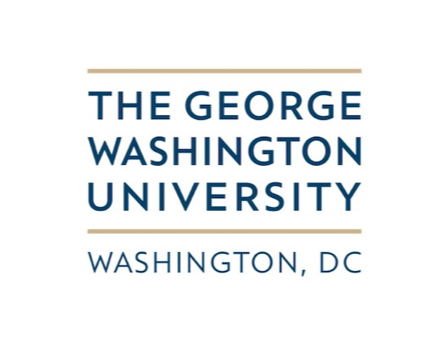Public health professionals ensure we have our daily necessities. If they didn’t have our backs, there simply wouldn’t be healthy food to eat, clean water to drink or non-hazardous air to inhale. These experts might excel at ensuring the provision of necessities, but they are just as excellent at taking on curveballs as well — think auto safety, vaccine development and distribution, the prevention of new infectious diseases, maternal and child health, obesity, and health care reform. Their insights are crucial to managing and providing solutions to such challenges.
Many of today’s key figures in this dynamic field got their start at the George Washington University (GW) Milken Institute School of Public Health. At this institution ranked 12th nationally (US News and World Report’s List Of Best Public Health Graduate Programmes), students explore the field’s history and carve its future — a fact evident through the cutting-edge research conducted in the institution’s state-of-the-art facilities.
From Washington D.C., the school studies AIDS, antibiotic resistance, the health of women and girls, natural disasters, health inequities, malaria vaccines, global nutrition, air pollution, climate change, and obesity. To encourage more to join the fight, it recruits top investigators, researchers, policy experts and educators.
Together and individually, they deliver comprehensive lessons in specialized areas. The Milken Institute School of Public Health has room for every world-bettering aspiration, offering Master of Public Health (MPH) degrees in Biostatistics; Community Oriented Primary Care; Environmental Health Science Policy, Epidemiology; Global Environmental Health; Global Health Epidemiology and Disease Control; Global Health Policy; Global Health Programme Design Monitoring and Evaluation; Health Policy; Health Promotion; Humanitarian Health; Maternal and Child Health; Physical Activity in Public Health; Public Health Communication and Marketing; as well as Public Health Nutrition.
It also offers Master of Science programmes (in Epidemiology, Health and Biomedical Data Science, Public Health Microbiology and Emerging Infectious Diseases, and Strength and Conditioning), alongside a Master of Health Administration programme, and a suite of joint or dual degree programmes.

Programmes by the Milken Institute School of Public Health uniquely position graduates for careers that require both breadth and depth of public health knowledge. Source: The George Washington University
Each 45-credit programme requires two years of study and is topical in its own unique way. For example, the MPH Biostatistics teaches students to apply statistical methods to the biological, biomedical, and health services sciences. Its curriculum is constantly revamped in line with global developments (25 courses have been added in the past two years).
“The curriculum is modern and pertinent to our world,” says Professor of Biostatistics, Heather Hoffman. “While students learn the foundation, cutting edge researchers serve as their mentors — each leverages their research and passion to educate.”
The MPH Global Environmental Health is just as dynamic, preparing students to work in resource-poor settings and apply analytic skills to prevent or reduce health problems associated with environmental hazards.
“Environmental risk factors should not be a fringe issue, rather environmental health needs to be central to the global public health agenda,” adds Susan Anenberg, director of the GW Climate and Health Institute.
“The GW Climate and Health Institute is a differentiating factor of this programme. It allows students to network with leaders in Environmental Health and helps them gain exposure to programming, events, and discussions. Most importantly, it teaches them to seek new solutions to global health and equity challenges associated with climate change.”
Despite each programme’s varying goals, they are all filled with experiential learning opportunities. For instance, all students at the Milken Institute School of Public Health take on a Practicum (internship or applied practice experience) during their programme to apply newfound knowledge.
Just before graduating and joining an illustrious list of 290,000 living alumni, students close their GW chapter with a Culminating Experience, which entails conducting research with a professor, writing a paper or strategizing a presentation. This requirement was set in place to ensure every budding public health professional leaves with something stellar to show for themselves. “It can even lead to job opportunities,” says Professor Hoffman.
Thankfully, there are plenty of those in Washington D.C. — where the Milken Institute School of Public Health is one of a kind. In fact, students have completed practicum and internships in various settings, federal agencies (like the US Agency for International Development, the US Environmental Protection Agency, the National Institutes of Health, not for profits (like MITRE Corporation, Helping Children Worldwide), and healthcare or public health groups (like Mercy Medical Center Cambodia, the Council of State and Territorial Epidemiologists). The opportunities are endless and GW’s Career Service team works with students to find the best match.
Opportunities aside, Ka Sin Cassie Ng, a second year Environmental Health Science and Policy student, loves living in DC! It is a city of culture, museums, home to the capital of the United States, and great public transportation. “I also enjoy D.C. because there are plenty of green parks and designated paths for me to ride my bike on,” she says. “Furthermore, D.C. is a smaller city, but it’s fun to navigate and gives students a nice balance of city life and nature.”
Little wonder why most of the Milken Institute School of Public Health classes are scheduled in the late afternoon and evening. This allows its 800 residential graduate students to take advantage of all that DC has to offer! With museums, historical landmarks, parks, cuisines, and shop-a-holic havens galore, there’s no better place to find the sweet spot between the rigours of a quality Master of Public Health and the dynamism of a vibrant student experience. Click here to learn more about the Milken Institute School of Public Health.
Follow The George Washington University on Facebook, Instagram, Twitter, and YouTube













